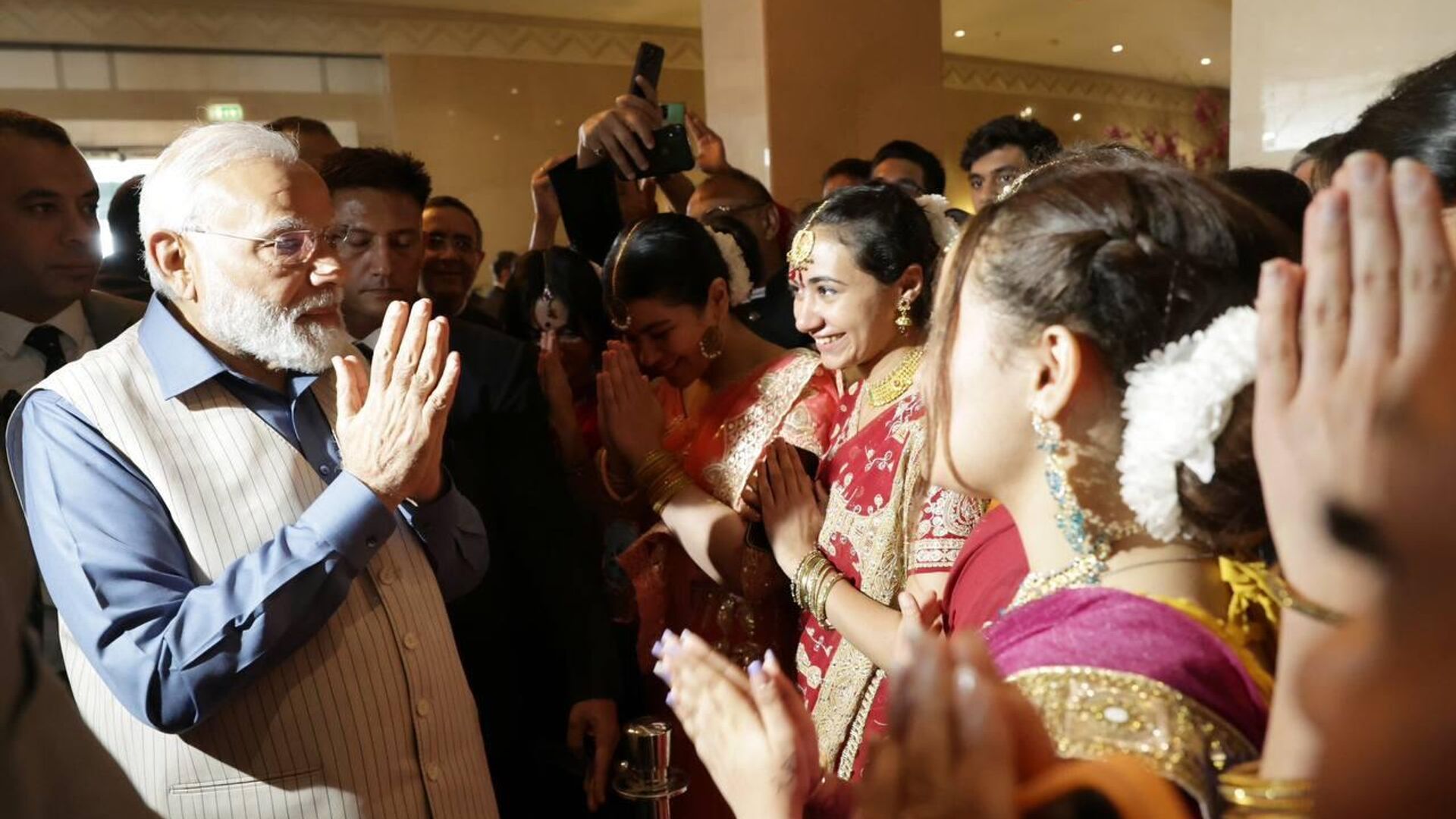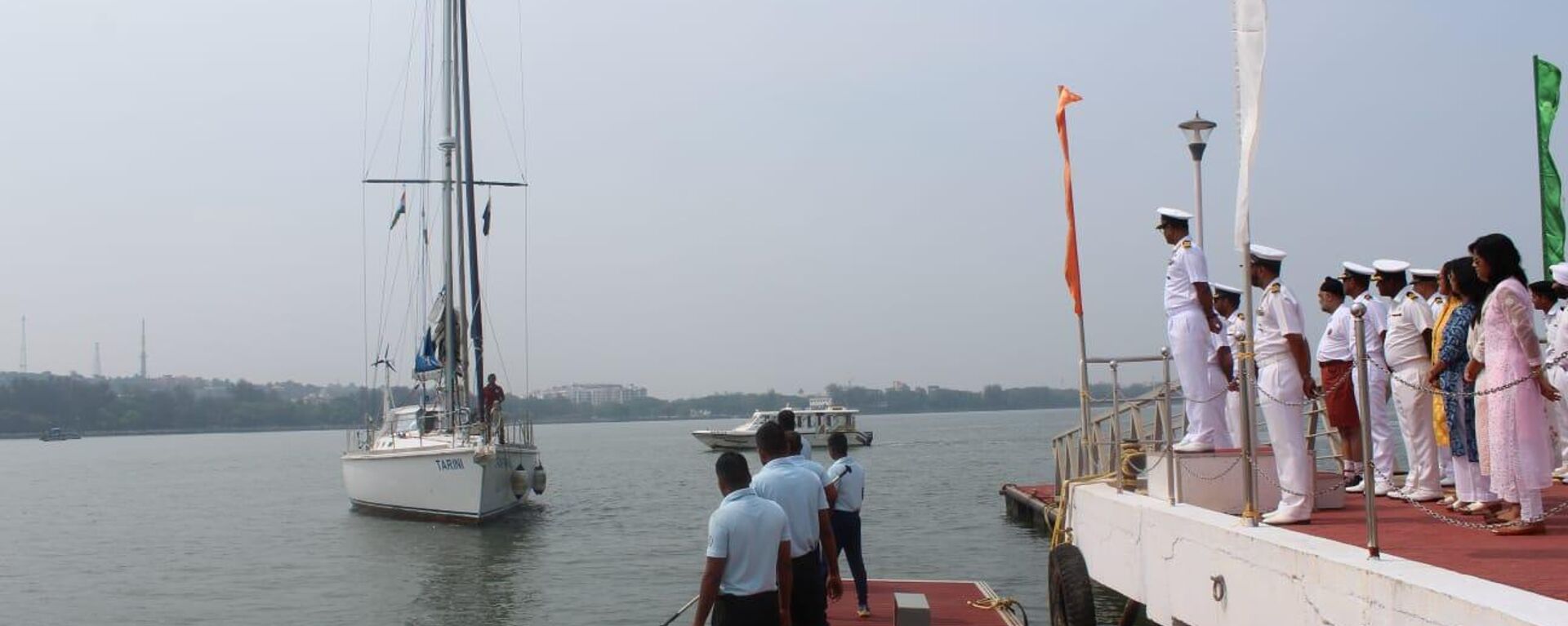https://sputniknews.in/20240907/rise-of-soft-power-diaspora-strengthening-indias-economy-8121431.html
Rise of Soft Power: Diaspora Strengthening India's Economy
Rise of Soft Power: Diaspora Strengthening India's Economy
Sputnik India
India's large diaspora is having a profound impact on its economy, driving growth in semi-urban and rural areas besides enhancing the nation's soft power abroad, an academic has said.
2024-09-07T19:56+0530
2024-09-07T19:56+0530
2024-09-09T18:02+0530
sputnik exclusives
narendra modi
india
united kingdom (uk)
bharatiya janata party (bjp)
us
middle east
gulf countries
saudi arabia
uae
https://cdn1.img.sputniknews.in/img/07e7/06/19/2676063_0:101:1280:821_1920x0_80_0_0_40515b37433c2d20eb1458af5d6a4381.jpg
India's large diaspora is having a profound impact on its economy by driving growth in semi-urban and rural areas besides enhancing the nation's soft power abroad, Dr. Sheetal Sharma, a diaspora expert, told Sputnik India.According to Sharma, who is a professor at the Centre for European Studies at New Delhi's Jawaharlal Nehru University (JNU), the first wave of Indians that left the country was during the colonial era. This included indentured labour, primarily workers working on the plantations and the agricultural fields of the colonisers, particularly the British, who forcefully settled Indians in countries including Suriname, Mauritius and Fiji.She elaborated that the second wave, which came post-independence, saw the Indian diaspora moving to Britain because of the country's historical connection. It was the time when both the rich and the poor shifted to the UK and then elsewhere in Europe.Meanwhile, the third wave of the diaspora was more prominent in the US as thousands of Indians went to America during the 1970s and 80s. The majority of these were highly educated such as engineers, IT professionals, or doctors.In the last ten years, the composition of Indian emigrants has become more diverse, with students acquiring short-term visas to study and work in foreign countries.She underlined that the Indian diaspora holds significant sway, especially in the US and the UK, where their population is estimated to be 3.5 and 2 million, respectively.However, Prime Minister Narendra Modi has brought increasing life into the relationship Delhi has with these people and there is greater enthusiasm in the diaspora to look back to their home country, she mentioned.In fact, Modi has instilled a hope of recognition in them, where they believe that somebody recognises their contributions to India. So from a level of disassociation, now they have a proactive association with their motherland, the geopolitical analyst observed.Additionally, they are investing large sums in constructing homes in the villages and cities from which they migrated, which is helping the Indian economy grow at a much faster pace, she remarked.On the other hand, Vijay Jolly, who is a former chief of the BJP's Foreign Cell, emphasised that PM Modi crisscrossing the globe both for bilateral relations but also to touch base with the large diaspora settled overseas has not only invoked, but also provoked, and motivated the Indian diaspora.Both young and old alike are doing great service to their motherland while being overseas and this has been recognised by the BJP even before 2014 when Modi came to power.After 2014, Modi's reportedly proactive approach connected the vast diaspora from Uganda to the US to Indonesia to their Indian roots. Thus, when the PM visits overseas, he's lapped up by the Indian diaspora, the BJP politician concluded.
https://sputniknews.in/20240903/how-maritime-soft-power-bolsters-indias-global-profile-8097052.html
india
united kingdom (uk)
us
middle east
gulf countries
saudi arabia
uae
the united arab emirates (uae)
Sputnik India
feedback.hindi@sputniknews.com
+74956456601
MIA „Rossiya Segodnya“
2024
Pawan Atri
https://cdn1.img.sputniknews.in/img/07e6/0c/13/139630_147:0:831:684_100x100_80_0_0_8fa2b25903e7787fe6a2698552c167df.png
Pawan Atri
https://cdn1.img.sputniknews.in/img/07e6/0c/13/139630_147:0:831:684_100x100_80_0_0_8fa2b25903e7787fe6a2698552c167df.png
News
en_IN
Sputnik India
feedback.hindi@sputniknews.com
+74956456601
MIA „Rossiya Segodnya“
Sputnik India
feedback.hindi@sputniknews.com
+74956456601
MIA „Rossiya Segodnya“
Pawan Atri
https://cdn1.img.sputniknews.in/img/07e6/0c/13/139630_147:0:831:684_100x100_80_0_0_8fa2b25903e7787fe6a2698552c167df.png
indian diaspora, indian diaspora contribution economy, indian diaspora soft power, indian diaspora news, modi diaspora brunei, narendra modi indian diaspora, modi diaspora, modi address diaspora, indian diaspora remittances, indian diaspora us, indian diaspora uk, indian diaspora assets,
indian diaspora, indian diaspora contribution economy, indian diaspora soft power, indian diaspora news, modi diaspora brunei, narendra modi indian diaspora, modi diaspora, modi address diaspora, indian diaspora remittances, indian diaspora us, indian diaspora uk, indian diaspora assets,
Rise of Soft Power: Diaspora Strengthening India's Economy
19:56 07.09.2024 (Updated: 18:02 09.09.2024) Indians constitute the largest overseas population in the world exceeding over 35 million, as per the country's Ministry of External Affairs.
India's large diaspora is having a profound impact on its economy by driving growth in semi-urban and rural areas besides enhancing the nation's soft power abroad, Dr. Sheetal Sharma, a diaspora expert, told Sputnik India.
According to Sharma, who is a professor at the Centre for European Studies at New Delhi's Jawaharlal Nehru University (JNU), the first wave of Indians that left the country was during the colonial era.
This included
indentured labour, primarily workers working on the plantations and the agricultural fields of the colonisers, particularly the British, who forcefully settled Indians in countries including
Suriname, Mauritius and Fiji.
She elaborated that the second wave, which came
post-independence, saw the Indian diaspora moving to Britain because of the country's historical connection. It was the time when both the rich and the poor shifted to the UK and then elsewhere in Europe.
Meanwhile, the third wave of the diaspora
was more prominent in the US as thousands of Indians went to America during the 1970s and 80s. The majority of these were highly educated such as
engineers, IT professionals, or doctors."Furthermore, in the last two or three decades, we saw a greater push toward the Middle East. Among the nations were Saudi Arabia, the United Arab Emirates, and Kuwait where a large number of people of Indian origin settled. Unlike the US, where a large number of Indian skilled workforce migrated, the Gulf states saw an influx of semi-skilled or unskilled labourers from India. These Indian migrants are associated with blue-collar jobs, like working at construction sites and being employed as cooks, security guards, and drivers amongst others," the JNU professor told Sputnik India on Friday.
In the last ten years, the composition of Indian emigrants has become more diverse, with students acquiring short-term visas to study and work in foreign countries.
She underlined that the Indian diaspora holds significant sway, especially in the US and the UK, where their population is estimated to be 3.5 and 2 million, respectively.
"This diaspora has been transformed into a solid asset for India in recent years. What has distinctively changed in the last decade or so is that earlier the country (read the Indian government) was disassociated with its diaspora as there was not much engagement with the Indian population overseas," Sharma explained.
However, Prime Minister Narendra Modi has brought increasing life into the relationship Delhi has with these people and there is
greater enthusiasm in the diaspora to look back to their home country, she mentioned.
In fact, Modi has instilled a hope of recognition in them, where they believe that somebody recognises their contributions to India. So from a level of disassociation, now they have a
proactive association with their motherland, the geopolitical analyst observed.
"The Indian diaspora is engaged in philanthropy, and social service besides sending billions of dollars in remittances to India. For example, India received over $111 billion in remittances in 2022, becoming the first nation to breach the $100 billion mark in this segment," Sharma highlighted.
Additionally, they are investing large sums in constructing homes in the villages and cities from which they migrated, which is helping the Indian economy grow at a much faster pace, she remarked.
"Plus, since they are Indians by heart, they carry the country's traditions, heritage, culture, and value system wherever they go, which to a certain extent increases Bharat's soft power at the global level," Sharma summed up.
On the other hand, Vijay Jolly, who is a former chief of the BJP's Foreign Cell, emphasised that PM Modi crisscrossing the globe both for bilateral relations but also to touch base with the large diaspora settled overseas has not only
invoked, but also provoked, and motivated the Indian diaspora.
Both young and old alike are doing great service to their motherland while being overseas and this has
been recognised by the BJP even before 2014 when Modi came to power.
"I have guided the Overseas Friends of the BJP, the overseas arm of the ruling party of India, by increasing the dragnet to 47 countries of the world. The Overseas Friends of the BJP branches across the planet have been identifying young Indians living abroad who are committed to contributing to the homeland Bharat," Jolly highlighted.
After 2014, Modi's reportedly proactive approach connected the vast diaspora from Uganda to the US to Indonesia to their Indian roots. Thus, when the PM visits overseas, he's lapped up by the Indian diaspora, the BJP politician concluded.



